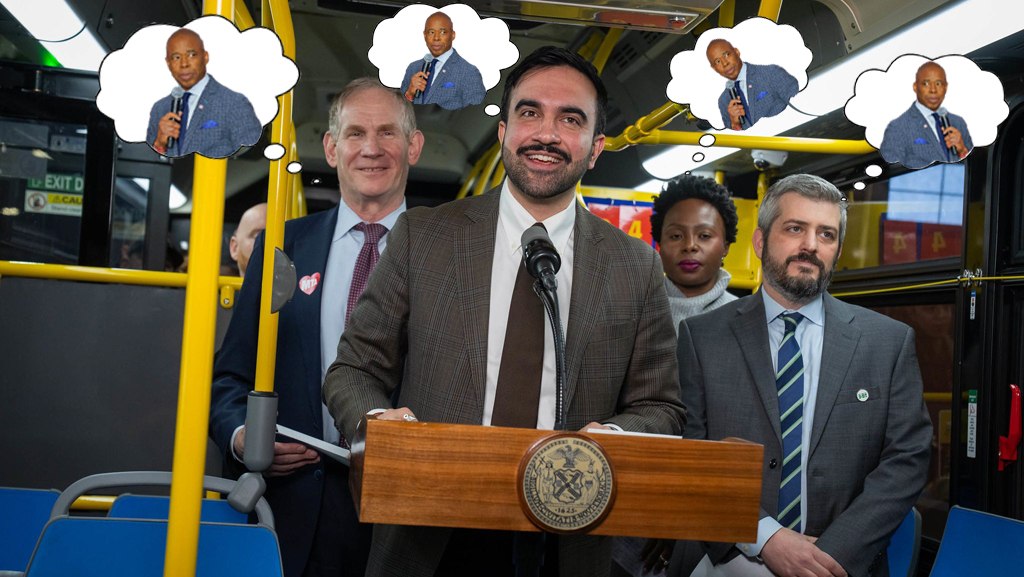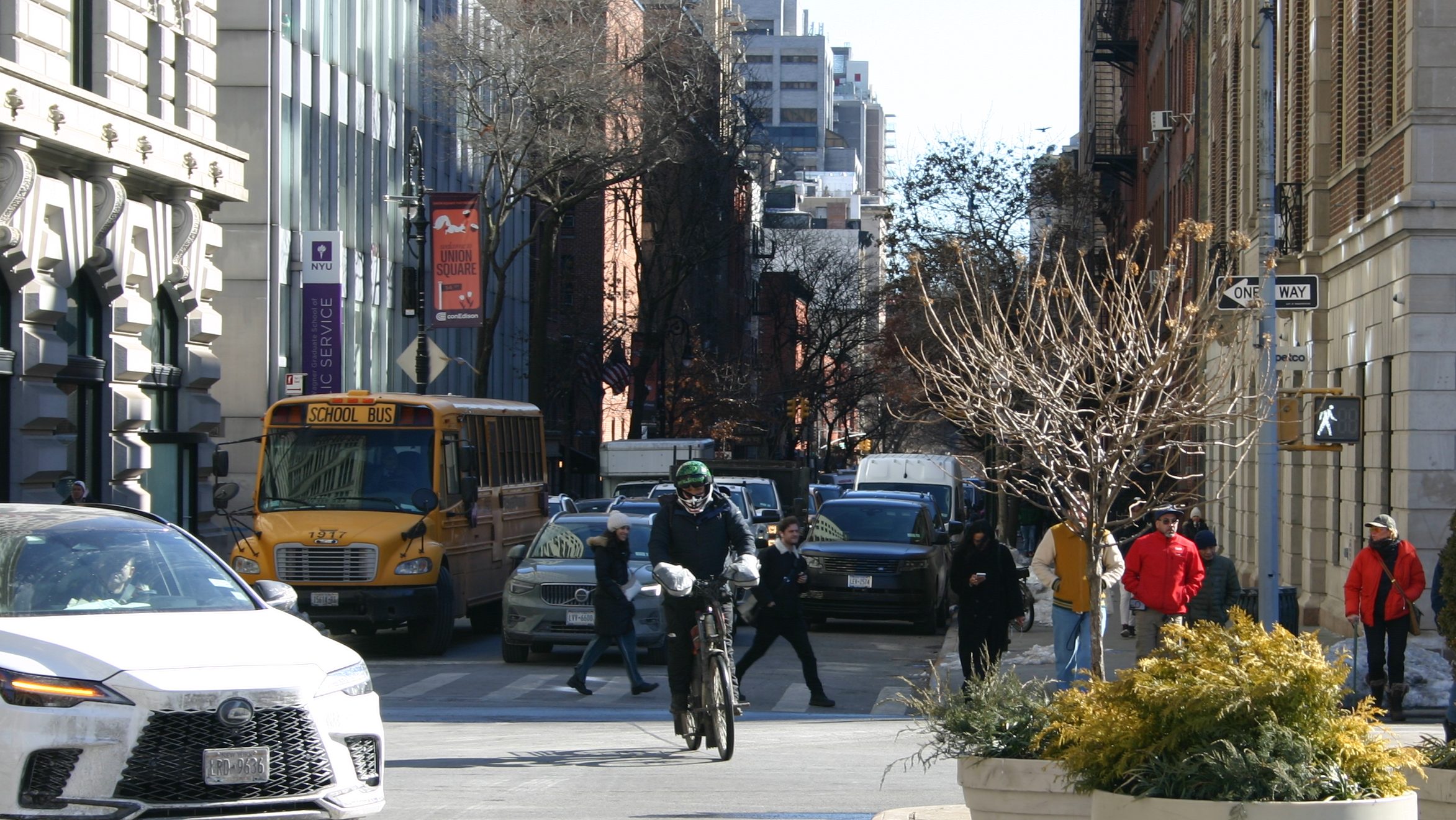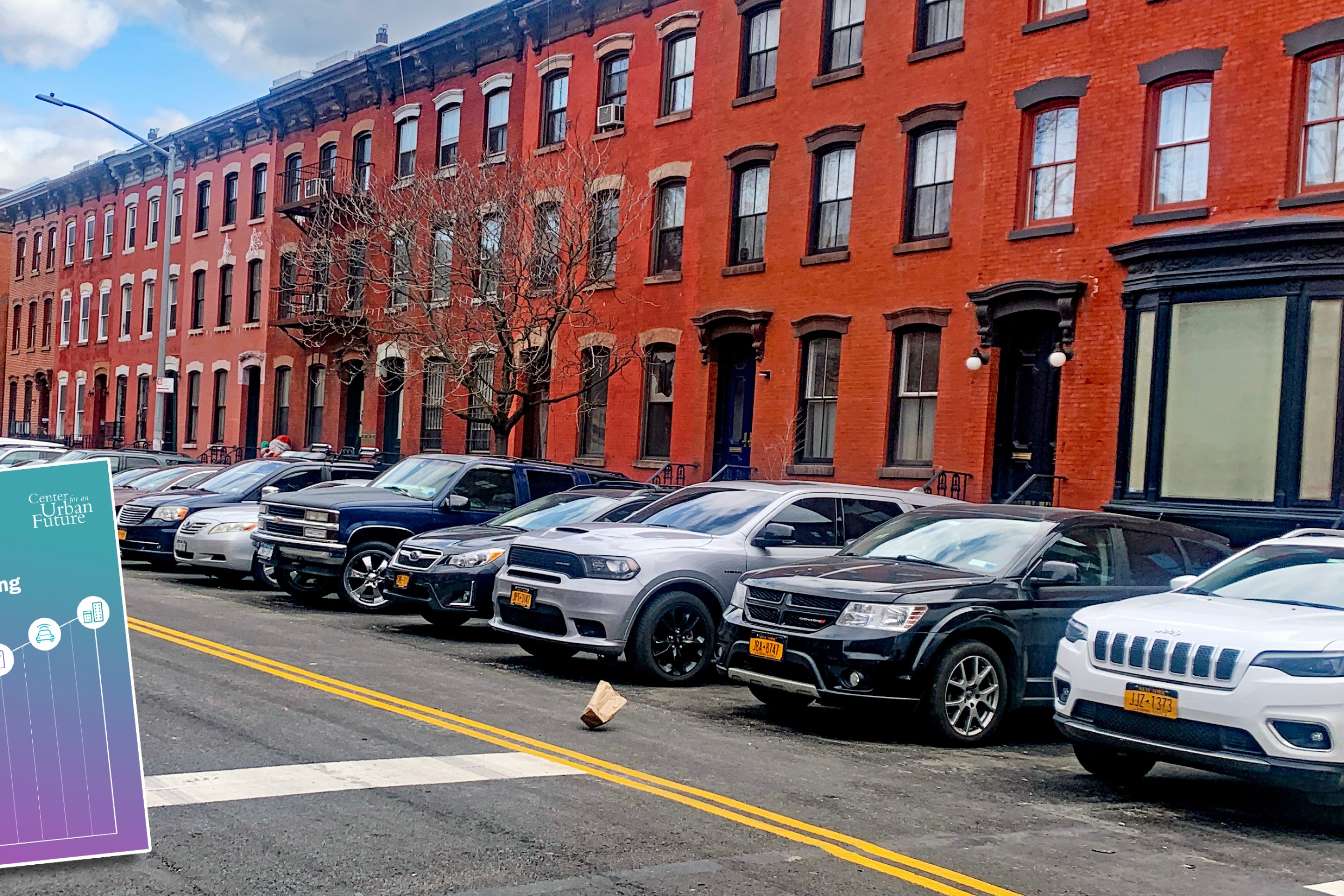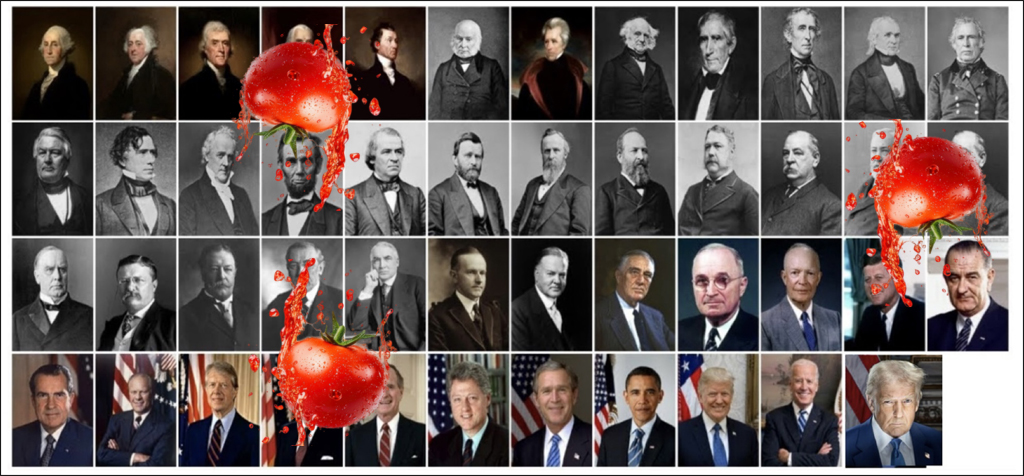 State Assembly Member Joan Millman's Downtown and brownstone Brooklyn district includes some of the most politically progressive, environmentally-conscious and traffic-choked neighborhoods of New York City -- neighborhoods that have been clamoring for traffic relief for years. Yet, Millman is, for now, opposed to Mayor Bloomberg's congestion pricing plan. In a letter sent to constituents who contacted her office Millman cites five concerns, summed up as follows:
State Assembly Member Joan Millman's Downtown and brownstone Brooklyn district includes some of the most politically progressive, environmentally-conscious and traffic-choked neighborhoods of New York City -- neighborhoods that have been clamoring for traffic relief for years. Yet, Millman is, for now, opposed to Mayor Bloomberg's congestion pricing plan. In a letter sent to constituents who contacted her office Millman cites five concerns, summed up as follows:
- The mayor's congestion pricing plan will create "undue hardships for many New Yorkers."
- The transit system is inadequate "to accommodate many of the New York City residents who currently commute to Manhattan by car," particularly the elderly and disabled.
- The majority of traffic into Manhattan is created by commuters from outside New York City so they should pay more.
- "Because a congestion pricing proposal of this magnitude has thepotential to become a bureaucratic catastrophe, the details ofadministration and reinvestment must be carefully worked out wellbefore the plan is approved."
- "While several large corporations are in support of the Mayor's plan," Millman has "not yet heard the same positive feedback from small, locally ownedbusinesses."
Here is the complete text of Millman's letter:
Dear Neighbor,
I am writing in response to your recent email message regarding the Mayor's congestion pricing plan. I agree with you that, ideally, congestion pricing could generate much needed revenue for improvements to and expansion of our mass transit system, and significantly reduce the amount of traffic, pollution and emissions of greenhouses gases in New York City. Unfortunately, when I met with representatives of the Mayor's Office to discuss the details of the proposal, I was not convinced that the current plan will succeed in accomplishing these goals without creating undue hardships for many New Yorkers. I have concerns with many aspects of the Mayor's plan.
One clear concern with the plan is that the mass transit system is severely inadequate to accommodate many of the New York City residents who currently commute to Manhattan by car. In fact, the MTA's policy of removing token booth collectors and the excessive lag times for repairs to broken elevators and escalators in subway stations, are just two of the recent examples of the transit system's failure to meet the needs of the elderly, the disabled, and other commuters who have difficulties navigating stairs.
Additionally, the data provided by the Mayor's Office overwhelmingly suggests that the majority of traffic into Manhattan is created by commuters from outside New York City. I am convinced that the congestion pricing plan should take this data into account by shifting a larger portion of the burden to commuters from the northern suburbs, Long Island and New Jersey.
I also questioned the Mayor's Office about how the City would collect the fee, including administration and infrastructure changes, and they admitted that there is no firm plan to date. Under close scrutiny of estimated administration costs, implementing the proposal will be significantly more expensive and complicated than originally anticipated. There has been no concrete explanation of the process by which the generated revenues will be invested into the mass transit system, or of how much money will be used to cover the administrative costs of the program. Because a congestion pricing proposal of this magnitude has the potential to become a bureaucratic catastrophe, the details of administration and reinvestment must be carefully worked out well before the plan is approved.
Furthermore, while several large corporations are in support of the Mayor's plan, I have not yet heard the same positive feedback from small, locally owned businesses - many of which are based in Brooklyn and other boroughs but conduct transactions in Manhattan on a daily basis. I am not convinced that these small business owners will come to the same conclusion as larger corporations that can more easily absorb the additional costs. For example, the current plan makes no distinction between a delivery truck from a multimillion dollar corporation and one from a bakery in Gowanus with fewer than a dozen employees - both would be charged the $21 commercial fee. I believe that the Mayor's plan must incorporate exemptions or reduced rates, or otherwise take steps to account for these real differences.
I certainly agree we must take action to improve the air quality and traffic problems in our Borough and City, but for congestion pricing to work for New York, it will have to work for all New Yorkers. The Mayor's Office agreed to supply me with additional information on the proposed congestion pricing plan, and I hope changes to the plan will be considered to address some of my reservations. While congestion pricing may prove to be the best idea, in its present form, I have many questions and concerns about the Mayor's proposal.
Thank you for sharing your ideas with me.





